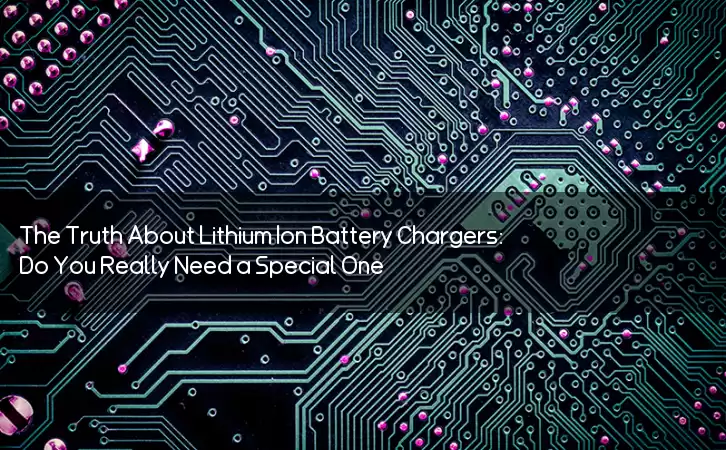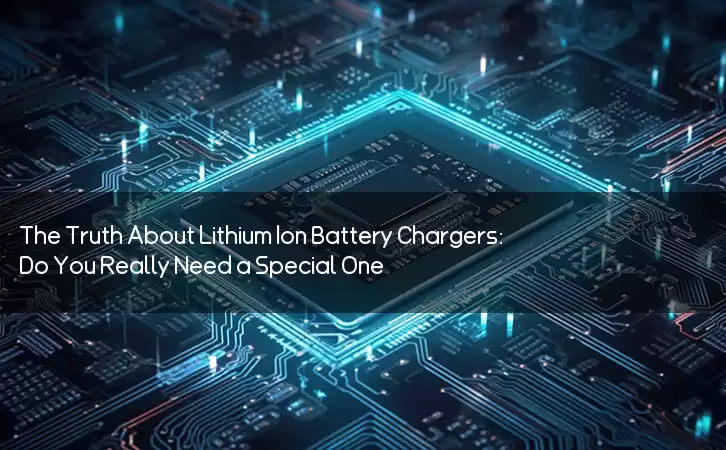Information Center
The Truth About Lithium Ion Battery Chargers: Do You Really Need a Special One?
Published:2023-08-15 00:34:38 Author:Green WCND Views:91Lithium ion batteries have become a popular power source for various electronic devices such as smartphones, laptops, and cameras. However, many people wonder if these batteries need a special charger or if they can use any charger to recharge their devices. In this article, we will explore the answer to this question and provide some important information about lithium ion batteries.

Firstly, it is essential to understand that lithium ion batteries operate differently than other traditional batteries. While other batteries gradually lose power when they are used, lithium ion batteries tend to retain a full charge until they are almost depleted. This means that lithium ion batteries do not require a regular charging schedule and instead can be recharged frequently without any harm to the battery life.

Now, coming back to the main question, do lithium ion batteries need a special charger? The answer is complicated. While lithium ion batteries don’t necessarily need a special charger, they do require specific charging parameters to maintain their performance and prevent any damage. In simpler terms, lithium ion batteries need a charger that meets their charging requirements.
Lithium ion batteries have several unique charging requirements; firstly, they must be charged within a specific voltage range. If lithium ion batteries are charged with a voltage that exceeds their specifications, they can become overheated and prone to damage. On the other hand, if the voltage is too low, the battery may not charge at all. Therefore, it is recommended to use a charger that is specifically designed to provide the correct voltage to the battery.
Secondly, lithium ion batteries have specific charging current values that they can accept. If the charging current is too high, it can damage the battery, whereas if the charging current is too low, the battery may not charge at all. Therefore, it is important to use a charger that is compatible with the battery’s charging current specifications.
Lastly, lithium ion batteries also require a charging cycle that comprises of different stages, such as a constant current charge, a constant voltage charge, and a trickle charge. A charger that is designed to meet these specifications can ensure that the battery is charged correctly and prevent any negative impact on the battery’s capacity and lifespan.
To sum up, while lithium ion batteries don’t require a special charger, they do need a charger that is compatible with their charging requirements. Using an incorrect charger can lead to battery damage, reduced capacity, and shorter lifespan. Therefore, it is important to choose a charger that meets the battery’s specifications and manufacturer’s recommendations.
In conclusion, understanding the unique charging requirements of lithium ion batteries is essential for their proper functioning and longevity. Although these batteries don’t require a special charger, it is crucial to use a charger that is designed to meet their specific charging parameters. Choosing a compatible charger can help maintain the battery’s performance and ultimately prolong its life.
Power Adapter Design and Customization Guide for Portable Electric KettlesI. Common Design Types for Portable Electric Kettle Power AdaptersPortable electric ke···
I. Common Design Types of Power Adapters External Independent Type (Most Common) Design: A standalone adapter (e.g., "black brick") connected to the p···
Handheld Vacuum Cleaner Power Adapter Selection GuideIntroductionHandheld vacuum cleaners have become a mainstream tool for household cleaning due to their port···
Drill Power Adapter Selection Guide.drill-container { font-family: Arial, sans-serif; line-height: 1.6; max-width: 800px; margin: 0 auto; padding: 20px; } .dril···





